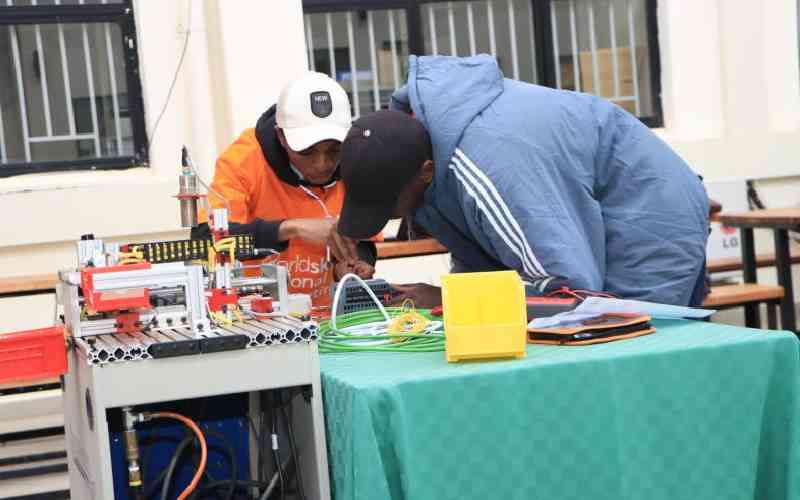
The EuroSkills competition took place last week in Gdansk, Poland with 32 countries presenting about 600 competitors in 42 skills areas. Most member states of WorldSkills International (WSI) concluded their national competitions in readiness for registration of competitors for the 2024 WorldSkills competition in Lyon France.
Equally, WorldSkills Asia and WorldSkills Americas have concluded their regional competitions also with very powerful themes that promote skills recognition and professional development, hence driving improvements in vocational training.
Kenya too conducted its inaugural national skills competition from 28th August to 1st September 2023 where over 150 youth from 32 TVET institutions and 13 universities participated in 18 skills areas of which 10 skills have been registered for competition in Lyon.
This momentous occasion will not only provide an opportunity to our competitors to showcase their competencies in their respective trades, but also a sign that Kenya is ready as a source of skilled labour. It will also go a long way in shaping and improving the quality and relevance of our vocational training system.
In the TVET strategy for 2023-29, UNESCO has put forth three priorities for skills.
The first one is skills for individuals to learn, work and live, second is for economies to transition towards sustainable development, and third is for inclusive and resilient societies.
TVET therefore is at the intersection of education and the world of work, and is expected to facilitate the insertion of individuals into the labour market, and their career progression.
It is also part of the social contract which should guarantee the right to education and decent employment, as well as intergenerational solidarity. TVET systems therefore should be proactive in the way they adapt their training supply to the benefit of individuals, economies, and societies.
To achieve objectives of TVET, WorldSkills International (WSI) activities must became and an integral part of vocational training system of every country as WSI practices are meant to improve quality of vocational education as its standards contain consistent and reliable benchmarks for TVET skills and qualifications.
TVET providers use this to revise curriculum and learning assessment methodologies on the basis of these well-recognised and reputable standards. The key point is that WS standards, adapted to everyday training and assessment preparation, shape training programs and TVET curricula at the microlevel.
Thus, the WorldSkills Competition approach has been successfully embedded into most of the Member States vocational education and is making TVET more challenging and effective.
The competitions offer real career experience as students are challenged to achieve a level of practice that is professional, in-demand and expected, as well as to master communication and teamwork skills. This learning by doing approach helps contestants to make a smooth transition from training to work and fosters the formation of professional identity, independence, and initiative.
While competitions are just one early step on the training success ladder as it involves building the expertise of its staff, raising the standards of skills, and allowing competitors to win national and international medals, it also raises their skill profile hence helping them to have a better transition to work.
It is important to note that competitions are not about the few who win but about the many whose lives can be shaped by them. Competitions are a critical tool for attracting young people to vocational training and also for keeping TVET systems up to date with changes in technology and the requirements of industry.
The writer is the Director General TVETA. langat.langat@tveta.go.ke